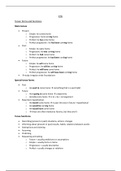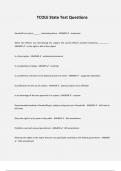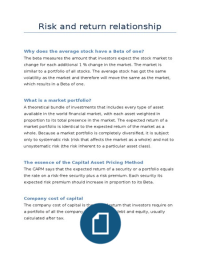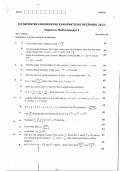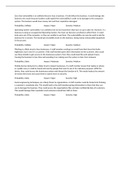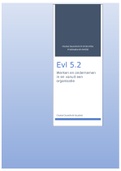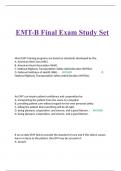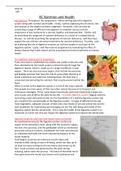ETK
Tense: forms and functions
Main tenses
• Present
o Simple: he comes home
o Progressive: he is coming home
o Perfect: he has come home
o Perfect progressive : he has been coming home
• Past:
o Simple: he came home
o Progressive: he was coming home
o Perfect: he had come home
o Perfect progressive: he had been coming home
• Future
o Simple: he will come home
o Progressive: he will be coming home
o Perfect: he will have come home
o Perfect progressive: he will have been coming home
• → study irregular verbs Foundations
Special tense forms
• Past
o He used to come home → something that is a past habit
• Future
o He is going to come home → subjectivity
o He is to come home → is to + be = arrangement
• Reported / hypothetical
o He would come home → in past this was in future + hypothetical
o He would be coming home
o He would have come home
o → these are often treated as futures, but they aren’t
Tense functions
• Describing (present or past) situations, actions, changes
• Informing about (present or past) results, habits, relations between events
• Stating facts and claiming
• Assuming
• Predicting
• Requesting and asking
o Future = usually predictions or assumptions
o Simple = usually facts or claims
o Progressive = usually descriptive
o Perfect = usually changes or relations
,Functions of present tenses
• SIMPLE
o Giving/inquiring about factual information
o Informing about a present habit/repeated action
o Describing a momentary event
o Describing a succession of events
o Describing/inquiring about a present state - stative verb
o (Historic present): to talk about the past
o (Informing about a unalterable fixed futures (= fact))
▪ () = minor uses
• PROGRESSIVE
o Describing an action with limited duration going on now
o Describing an action with limited duration during enlarged now
o Informing about a habit with limited duration (time frame ADV)
o Making a careful suggestion/polite enquiry
o (Irritating habit (frequency ADV))
o (Historic present/backgrounding)
o (Arranged future)
• PERFECT
o Informing about a result of an action (‘resultative’)
o Informing about a state up to the present (starting point or period ADV)
o Referring to an indefinite past (frequency or recency ADV)
o (New information) = resultative use
o (Stative verb)
• PERFECT PROGRESSIVE
o Describing an uninterrupted state up to present
o Describing a repeated indefinite past
o (Explanatory-resultative)
o (Implied reproach due to repetition)
▪ Not only state, also action
Functions of past tenses
• SIMPLE
o Describing a momentary action in past
o Informing about a past habit describing a past routine
o Informing about a finished action or event
o Making a polite enquiry about present - social distancing
▪ Do did you want to do that?
• PROGRESSIVE
o Describing a duration or repetition in the past
o Providing a time frame for a momentary past action
o Informing about a past habit with irritation/surprise speaker
o Making a polite enquiry about past or present
▪ Progressive is coloured, simple is neutral
▪ Are were you going to come?
• PERFECT
o Describing a result with past reference point
, o Describing a state up to a past reference point
o Referring to an indefinite past before past
o Referring to a definite past before past
o Referring to a counterfactual past (irrealis)
• PERFECT PROGRESSIVE
o Describing a duration up to a past reference point
o Emphatic use of stative with duration focus
o Explanatory resultative
Functions of future tenses
• SIMPLE
o Making a neutral prediction about future with no/little personal involvement
▪ With ‘going to’ is subjective
o a prediction based on experience (personal or scientific)
o Making an assumption
o Requesting/inviting
o (Promise)
• PROGRESSIVE
o A neutral prediction about event with limited duration
o An assumption with irritation speaker
o Enquiring politely
• PERFECT (Progressive)
o Referring to a completion at a future reference point (+ uninterruptedness)
o Expressing a result with future reference point
o Making an assumption
• BE GOING + TO INF
o Expressing a premeditated intention
o Expressing a subjective feeling of certainty (based on…)
▪ Own experience
• BE + TO INF
o Informing about a scheduled/official future
o Making a claim about a predestination
▪ Fixed future, no level of uncertainty
• All future tenses can be used for assumptions
Tense and aspect
Introduction – question 1
• Bounded vs unbounded (way of looking at situation)
o Bounded = externally, entirety
▪ Simple, eg write
o Unbounded = internal view, close-up, as if you’re inside activity
▪ Progressive, eg writing
• Telic vs atelic
o Telic = with inherent endpoint
o Atelic = without inherent endpoint
Tense: forms and functions
Main tenses
• Present
o Simple: he comes home
o Progressive: he is coming home
o Perfect: he has come home
o Perfect progressive : he has been coming home
• Past:
o Simple: he came home
o Progressive: he was coming home
o Perfect: he had come home
o Perfect progressive: he had been coming home
• Future
o Simple: he will come home
o Progressive: he will be coming home
o Perfect: he will have come home
o Perfect progressive: he will have been coming home
• → study irregular verbs Foundations
Special tense forms
• Past
o He used to come home → something that is a past habit
• Future
o He is going to come home → subjectivity
o He is to come home → is to + be = arrangement
• Reported / hypothetical
o He would come home → in past this was in future + hypothetical
o He would be coming home
o He would have come home
o → these are often treated as futures, but they aren’t
Tense functions
• Describing (present or past) situations, actions, changes
• Informing about (present or past) results, habits, relations between events
• Stating facts and claiming
• Assuming
• Predicting
• Requesting and asking
o Future = usually predictions or assumptions
o Simple = usually facts or claims
o Progressive = usually descriptive
o Perfect = usually changes or relations
,Functions of present tenses
• SIMPLE
o Giving/inquiring about factual information
o Informing about a present habit/repeated action
o Describing a momentary event
o Describing a succession of events
o Describing/inquiring about a present state - stative verb
o (Historic present): to talk about the past
o (Informing about a unalterable fixed futures (= fact))
▪ () = minor uses
• PROGRESSIVE
o Describing an action with limited duration going on now
o Describing an action with limited duration during enlarged now
o Informing about a habit with limited duration (time frame ADV)
o Making a careful suggestion/polite enquiry
o (Irritating habit (frequency ADV))
o (Historic present/backgrounding)
o (Arranged future)
• PERFECT
o Informing about a result of an action (‘resultative’)
o Informing about a state up to the present (starting point or period ADV)
o Referring to an indefinite past (frequency or recency ADV)
o (New information) = resultative use
o (Stative verb)
• PERFECT PROGRESSIVE
o Describing an uninterrupted state up to present
o Describing a repeated indefinite past
o (Explanatory-resultative)
o (Implied reproach due to repetition)
▪ Not only state, also action
Functions of past tenses
• SIMPLE
o Describing a momentary action in past
o Informing about a past habit describing a past routine
o Informing about a finished action or event
o Making a polite enquiry about present - social distancing
▪ Do did you want to do that?
• PROGRESSIVE
o Describing a duration or repetition in the past
o Providing a time frame for a momentary past action
o Informing about a past habit with irritation/surprise speaker
o Making a polite enquiry about past or present
▪ Progressive is coloured, simple is neutral
▪ Are were you going to come?
• PERFECT
o Describing a result with past reference point
, o Describing a state up to a past reference point
o Referring to an indefinite past before past
o Referring to a definite past before past
o Referring to a counterfactual past (irrealis)
• PERFECT PROGRESSIVE
o Describing a duration up to a past reference point
o Emphatic use of stative with duration focus
o Explanatory resultative
Functions of future tenses
• SIMPLE
o Making a neutral prediction about future with no/little personal involvement
▪ With ‘going to’ is subjective
o a prediction based on experience (personal or scientific)
o Making an assumption
o Requesting/inviting
o (Promise)
• PROGRESSIVE
o A neutral prediction about event with limited duration
o An assumption with irritation speaker
o Enquiring politely
• PERFECT (Progressive)
o Referring to a completion at a future reference point (+ uninterruptedness)
o Expressing a result with future reference point
o Making an assumption
• BE GOING + TO INF
o Expressing a premeditated intention
o Expressing a subjective feeling of certainty (based on…)
▪ Own experience
• BE + TO INF
o Informing about a scheduled/official future
o Making a claim about a predestination
▪ Fixed future, no level of uncertainty
• All future tenses can be used for assumptions
Tense and aspect
Introduction – question 1
• Bounded vs unbounded (way of looking at situation)
o Bounded = externally, entirety
▪ Simple, eg write
o Unbounded = internal view, close-up, as if you’re inside activity
▪ Progressive, eg writing
• Telic vs atelic
o Telic = with inherent endpoint
o Atelic = without inherent endpoint

